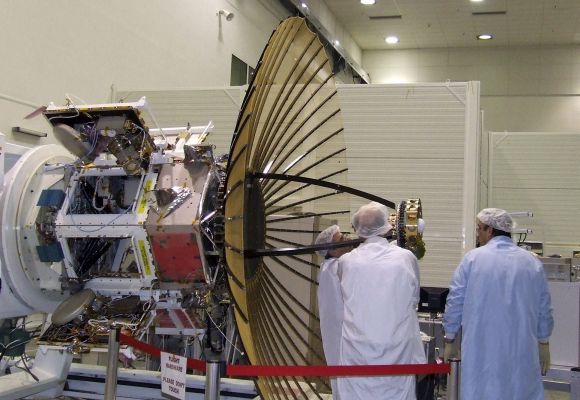Photographs: Babu Babu/Reuters Ron Somers
Stricter intellectual norms can help India grow faster.
In the past decade alone, India's GDP has nearly quadrupled. India is one of the ten largest economies in the world, already home to eight companies that are included in the Global 500.
India sends some of its best and brightest to top research institutions around the world. More than 100,000 students from India contribute brain-power and a unique discipline of learning to US colleges and universities each year.
And India is host to seven Nobel Laureates, five of those in STEM subjects (science, technology, engineering and mathematics).
It is no surprise that in 2008 India joined a very exclusive 'club' with the successful moon launch of Chandrayaan. Until then, only six other nations on the planet had ever entered into lunar orbit.
Yet, these powerful statistics belie another reality.
…
Why India lags behind in innovation
Image: Every major river in India is grossly polluted. In the picture, boys collect coconuts thrown in as offerings by worshippers in the waters of the Sabarmati river.Photographs: Amit Dave/Reuters
India ranks 147th out of 181 countries in the most recent United Nations Education Index. Fewer than 10 per cent of Indians have regular access to the internet.
India struggles with energy security, having one of the lowest per-capita utilisation rates regarding access to reliable electricity.
According to Indian statistics, every major river in India is grossly polluted. India will soon overtake China as the world's largest producer of greenhouse gases.
These are stark reminders that underscore how India's progress must be accelerated.
But progress at the appropriate scale can only be achieved by innovation. The best example: Recall the leap-frogging that transformed India's telecom industry.
Indian scientists and engineers are working with multinational corporations around the globe to develop answers to the most pressing problems of the 21st century.
…
Why India lags behind in innovation
Photographs: Ho New/Reuters
They are developing the high-tech and information and communication technologies (ICT) that will connect India to the global innovation economy, to green technologies that will power India and other nations onward - but sustainably, and they are helping discover new medicines that can save humanity.
All this must take place with a sense of urgency - such are the pressing problems of our times.
To foster innovation, India must become the beacon, the safe haven that respects and rewards intellectual property, a society that upholds and strengthens international commitments, and one that protects intellectual property rights with a vengeance to spur and incentivise innovation.
The Indian government, recognising the power of innovation to kick-start socio-economic transformation, declared 2010-2020 as the "Decade of Innovation."
…
Why India lags behind in innovation
Photographs: David Mercado/Reuters
Just last year, the Government of India released its draft National IPR strategy, which is comprehensive. Still, over the same period, India has erected barriers to international trade and investment across the full range of IP-intensive industries.
Its limitations on foreign direct investment and preferential market access policies have limited investment in critical ICT infrastructure development and trade in high-tech products, limiting India's ability to compete in the global innovation economy.
The Indian Patent Controller has revoked patents and has compulsorily licensed biopharmaceutical products, creating an unpredictable environment for future investment in innovation and R&D.
There are grave concerns about intellectual property protection in India. The need for innovation is essential to the well-being of every nation.
…
Why India lags behind in innovation
Photographs: Fabian Bimmer/Reuters
The ability of a country to sustain its economic growth, increase the standard of living of its citizens, and improve human health depends directly upon successful development and access to new products, processes, and services.
But to do that, innovators in areas such as pharmaceuticals, information technology, and clean energy need assurance that their ideas and discoveries will be protected and rewarded.
The more we can work together to ensure an environment that appreciates and respects intellectual property rights, the more we all will prosper.
Silicon Valley in the United States is an example to the world. The dozen equally impressive Silicon Valleys in India need to blaze a similar path of innovation. We are in this together, and the world is one.
The writer is president of the US-India Business Council, dedicated to advancing US-India commercial ties







article